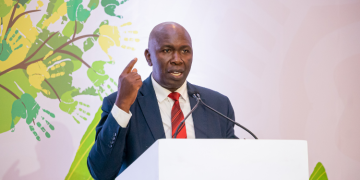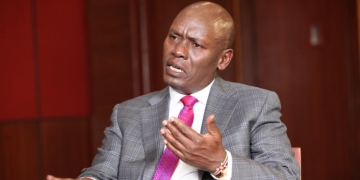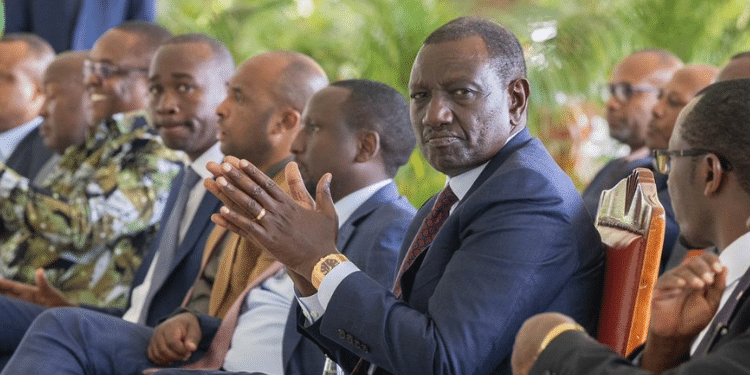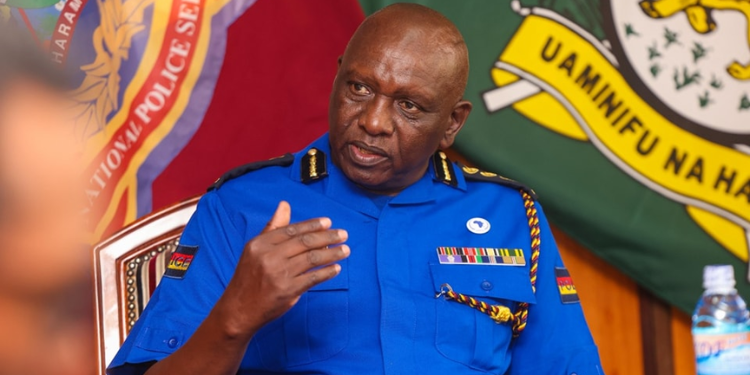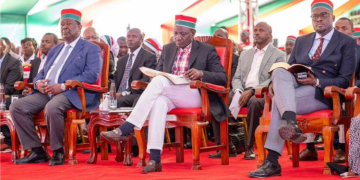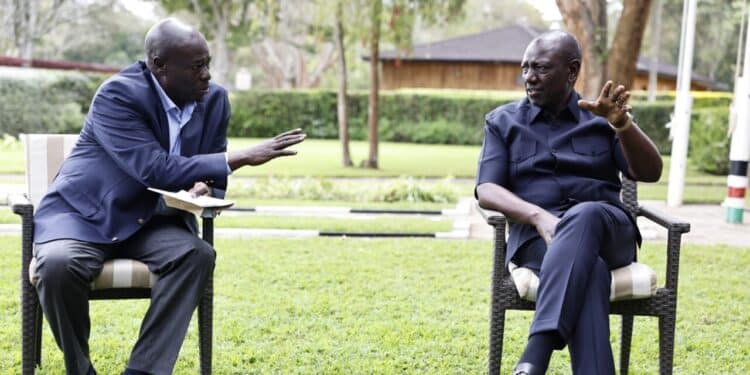Article 149: Vacancy in the Office of Deputy President
1) Within fourteen days after a vacancy in the office of Deputy President arises, the President shall nominate a person to fill the vacancy, and the National Assembly shall vote on the nomination within sixty days after receiving it.
Article 149 of the Constitution of Kenya, 2010, deals with the process of filling a vacancy in the office of the Deputy President. It outlines the steps that must be followed when such a vacancy arises during the term of the President.
Here is the full text as extracted from Article 149 (1):
Article 149: Vacancy in the Office of Deputy President
- If a vacancy occurs in the office of the Deputy President:
- (a) the President shall nominate a person to fill the vacancy within fourteen days after the vacancy arises; and
- (b) the National Assembly shall vote on the nomination within sixty days after receiving it.
- A person nominated by the President under clause (1) shall assume office upon approval by the National Assembly.

Key Points of Article 149:
- Nomination by the President: When the office of the Deputy President becomes vacant, the President is required to nominate a new candidate within 14 days.
- Parliamentary Approval: The National Assembly has 60 days to vote on the nomination after it receives the proposal from the President. The individual nominated can only assume office if they are approved by the majority in the National Assembly.
This Article emphasizes the importance of filling the office of the Deputy President swiftly and democratically, ensuring the continuous functioning of the executive branch, with proper checks and balances between the executive (President) and the legislature (National Assembly).
Also Read: DP Rigathi Gachagua Impeached by Senators
In Article 149(1) of the Constitution of Kenya, 2010, the terms “nominate” and “vote” carry distinct legal interpretations with underlying constitutional principles that guide the process of filling a vacancy in the office of the Deputy President.
Here’s the breakdown of their legal interpretations and the key legal principles implied:
- Nominate
The word “nominate” refers to the President’s formal act of proposing or selecting a person to fill the vacancy in the office of the Deputy President. This is an executive prerogative.
Legal Interpretation:
- Nomination as Executive Discretion: The President exercises discretionary power in nominating a candidate for the vacant office. There is no stipulation on the criteria or the process the President must follow in selecting the nominee, but the action is inherently tied to the constitutional responsibility of ensuring continuity in the executive branch.
- Not Binding Until Approval: The nomination, however, is not final or automatically effective. It must undergo parliamentary approval, reflecting that the nomination is a proposal rather than an appointment.
Legal Principles Implied:
- Separation of Powers: The act of nomination by the President reflects the principle of separation of powers, where the executive branch is vested with the authority to propose an individual for the role, subject to parliamentary oversight.
- Discretionary Power: The President’s power to nominate implies a degree of discretion and judgment, which must be exercised in line with constitutional principles and public interest.
- Vote
The word “vote” refers to the process by which the National Assembly decides whether to approve the President’s nominee for the position of Deputy President. The term “vote” indicates that the decision is majoritarian, requiring a majority of members of parliament to either approve or reject the nomination.
Legal Interpretation:
- Voting as Parliamentary Oversight: The act of voting on the nominee involves parliamentary oversight over the executive. Members of the National Assembly have the duty to scrutinize the nominee and decide whether they are suitable for the office.
- Majority Approval: For the nominee to be confirmed as Deputy President, a majority vote in the National Assembly is required. This ensures that the appointment is democratic and representative of the people’s will, through their elected members.
Legal Principles Implied:
- Checks and Balances: The requirement for the National Assembly to vote on the nominee emphasizes the principle of checks and balances. While the President can nominate, the final decision rests with the legislature, preventing the executive from having unchecked power over the appointment.
- Democratic Legitimacy: The voting process reflects democratic legitimacy. The Deputy President is not only nominated by the executive but also approved by representatives of the people in parliament, ensuring a broad-based consensus for such a high office.
Also Read: Gachagua Replacement: 5 Top Candidates Likely to be Kenya’s Next Deputy President
Legal Principles Summary
The legal principles implied by the interpretation of “nominate” and “vote” in Article 149(1) are:
- Separation of Powers: The executive (President) nominates, while the legislature (National Assembly) votes to approve or reject the nomination. This maintains the independence of both branches.
- Checks and Balances: The process involves an inter-branch check where the legislature scrutinizes the President’s choice to prevent arbitrary or partisan appointments.
- Democratic Accountability: Voting by the National Assembly ensures that the individual occupying the position of Deputy President has democratic backing, safeguarding the people’s interest through their representatives.
- Continuity of Government: The process ensures that the office of Deputy President is promptly filled in case of a vacancy, preserving the continuity and stability of the executive branch.
These principles aim to balance executive discretion with legislative oversight and ensure that the appointment of a Deputy President follows a transparent, democratic process.
Follow our WhatsApp Channel and join our WhatsApp Group for real-time news updates:

















